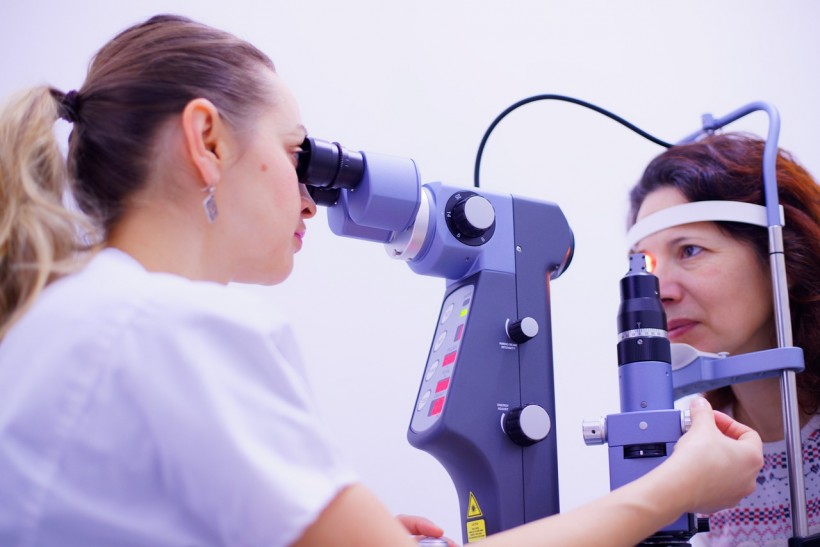According to the study conducted in 2007-2011, the Google query rate for LASIK was highest in India, followed by others like the United Kingdom, Canada, and United States. LASIK (laser-assisted in situ keratomileusis) surgery got approved by the Food and Drug Administration (FDA) in 1998. This advanced procedure is commonly performed to cure refractive errors. For a better understanding, look at the statistics quoted by NCBI for LASIK search globally:
|
Year |
United States |
Canada |
United Kingdom |
India |
|
2007 |
0.78 |
0.99 |
2.12 |
* |
|
2008 |
0.62 |
0.98 |
2.03 |
2.78 |
|
2009 |
0.51 |
1.01 |
1.73 |
2.4 |
|
2010 |
0.47 |
1.07 |
1.66 |
2.12 |
(https://www.ncbi.nlm.nih.gov/pmc/articles/PMC3679260/)
What is LASIK?
LASIK is an advanced surgical procedure to correct eyesight errors. The eye specialist performs LASIK while making a precise laser incision to fix the cornea to cure the visionary abnormalities. People wearing contact lenses and glasses for a longer period usually undergo LASIK surgery to improve their eyesight permanently. There are common refractive errors like myopia, hyperopia, and astigmatism that can be corrected with the latest FDA-approved LASIK surgery.
Benefits of LASIK
In 2016, the Journal of Cataract & Refractive Surgery stated, "LASIK has a 96% patient satisfaction rate. The latest research also indicated that LASIK has a 99% success rate in achieving 20/40 vision or better, and a 90% success rate in achieving 20/20 vision or better." LASIK is a safe and successful procedure, and undergoing this treatment has several benefits:
-
It is an outpatient procedure that may last 15-20 minutes only.
-
LASIK is a painless procedure.
-
There are no chances of infection.
-
During the LASIK procedure, computer-guided laser beams are used, which are accurate and precise.
-
There are no significant complications or LASIK surgery.
-
LASIK has a faster recovery time compared to other procedures.
-
You would be able to notice instant results post-surgery
-
You do not have to wear contact lenses and glasses post LASIK surgery.
Does LASIK work for everyone?
Primarily LASIK surgical procedure works for everyone who has stable refractive errors. The vision abnormalities may include:
Myopia- This is also known as near-sightedness which usually occurs due to steeper cornea.
Hyperopia- This abnormality is referred to as far-sightedness, mostly happens when the cornea is too flat.
Astigmatism- This error occurs when the shape of the cornea gets irregular, and light starts refracting incorrectly.
Who is the right candidate for LASIK?
To undergo LASIK surgery, there are a few things you need to keep in mind to be considered as a good candidate:
-
The age of the candidate must be at least 18 years old.
-
The candidate must not have any serious eye disease or infection that may cause complications during the LASIK procedure.
-
The candidate's overall health should be free from severe health issues such as uncontrolled diabetes, taking prescribed medication, etc.
-
If you have any eye disorder, inform your specialist firsthand to eliminate any occurrence of health risks.
Who is not the right candidate for LASIK?
There are particular factors that may disqualify you as the right candidate for the LASIK procedure:
-
The results of LASIK surgery are usually permanent. However, during the adolescent years, the vision keeps on changing. So, a person below 18 years of age is not considered as a right candidate for LASIK.
-
Women who are breastfeeding or pregnant are also not suitable candidates for LASIK because of hormonal fluctuation during the period.
-
If your refractive errors are unstable and fluctuate frequently. The specialist usually recommends LASIK if your visionary error is stable at least for one complete year.
-
People suffering from dry eye syndrome are usually not recommended to undergo LASIK surgery.
-
Patients with high refractive errors and extreme vision abnormalities are also not considered as good candidates for LASIK.
Technological Advancements of LASIK Procedures
Femtosecond Laser- The introduction of this technology for LASIK has eliminated the need for a blade during the procedure. This technology has also reduced complications and made the LASIK procedure much easier and faster in terms of recovery.
Wavefront Laser- This technique corrects the cornea errors that contact lenses or glasses can not improve. Undergoing advanced LASIK procedure corrects the error while curing all sorts of vision abnormalities.
Topography-guided Laser- This technique is usually performed after analyzing all the diagnoses conducted to prepare for the LASIK. This technology for vision correction is considered extremely precise and accurate for individualized corneal improvement.
Pristyn Care eye specialist says," It is always advisable and a better option to schedule regular check-ups with your ophthalmologist to avoid any risk of eye infections and eye syndromes. In addition, if you are suffering from any refractive errors, consult an experienced eye specialist to get a thorough diagnosis to receive a suitable LASIK treatment to increase the success rate."
© 2024 NatureWorldNews.com All rights reserved. Do not reproduce without permission.
* This is a contributed article and this content does not necessarily represent the views of natureworldnews.com


![Critical Fire Weather Forecast Issued for Great Plains, Red Flag Warnings in Effect [NWS]](https://1471793142.rsc.cdn77.org/data/thumbs/full/70269/280/157/50/40/critical-fire-weather-forecast-issued-for-great-plains-red-flag-warnings-in-effect-nws.jpg)



